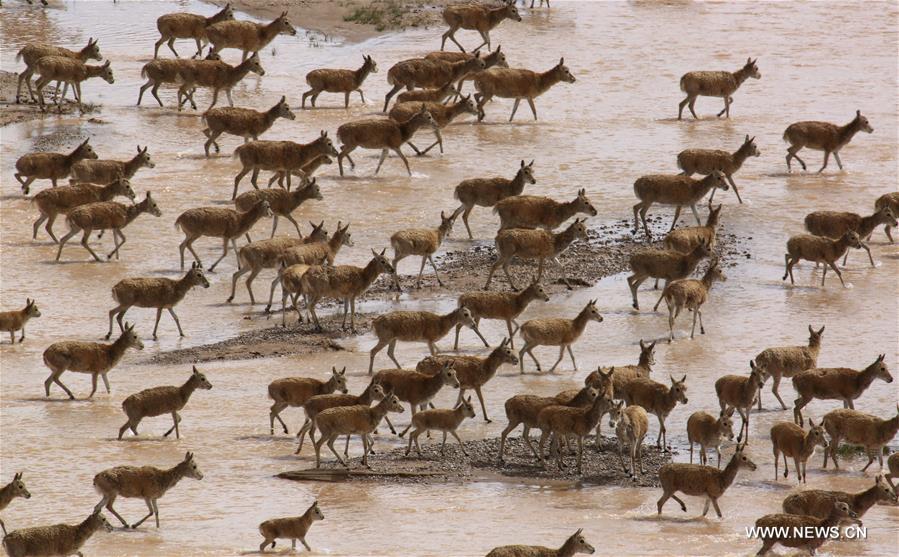Three fined for riding across nature reserve
By Li Hongyang | China Daily Global | Updated: 2019-05-09 09:16

Three people were fined 5,000 yuan ($740) each by forestry police in the Tibet autonomous region for illegally crossing the Changtang Nature Reserve.
Lhapa, head of the natural resources bureau of Amdo county, said management of the reserve would be enhanced by rangers and by putting up more signs to remind people not to break the law.
On March 5, Feng Hao, Jin Lu and Li Zhisen, all in their 20s, started out on a bicycle trip through the reserve, Li said on his social media account.
After 10 days, Feng, who had no previous experience crossing the reserve, became separated from the others and got lost on the frozen plateau.
Li and Jin continued riding and exited the reserve on April 17. The next day, after finding that Feng hadn't gotten out, they called police for help.
Four police stations in the Tibet autonomous region sent out officers in a search that lasted 18 days. On Sunday, rescuers found Feng in a remote area under the jurisdiction of Golmud, Qinghai province.
He had fallen behind after injuring his knee and could not go fast. After consuming all his food, he ate grass roots for more than a week to stay alive and lost 15 kilograms, Feng told Beijing Youth Daily.
Lhapa said illegal crossings can seriously damage natural resources in the reserve, including affecting wild animals' migration patterns or even survival.
"In addition, rescuing Feng has wasted a large amount of national public resources," he said.
In April 2017, the Forestry Bureau of the Tibet autonomous region announced a strict prohibition on people crossing the Changtang reserve.
"Tourists or explorers should obey the laws and regulations and not cross the reserve, to protect one of the largest nature reserves in the world," the bureau said.
Changtang Nature Reserve covers about 290,000 square kilometers, and is more than 5,000 meters above sea level. It has many rare species, including the Tibetan antelope, wild yak and lynx.
To protect them, Tibet set up 73 ranger stations around the reserve to patrol and manage the area.
























